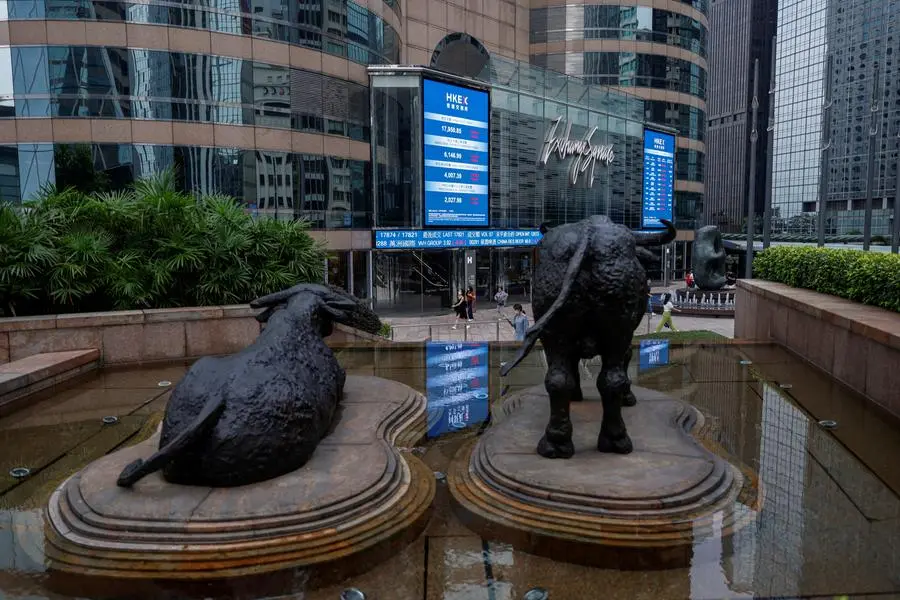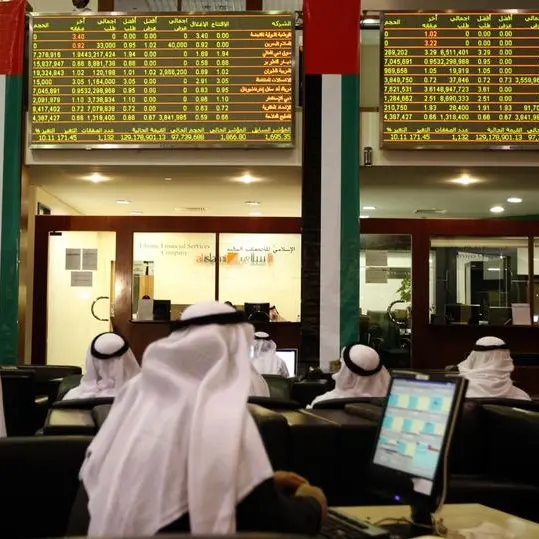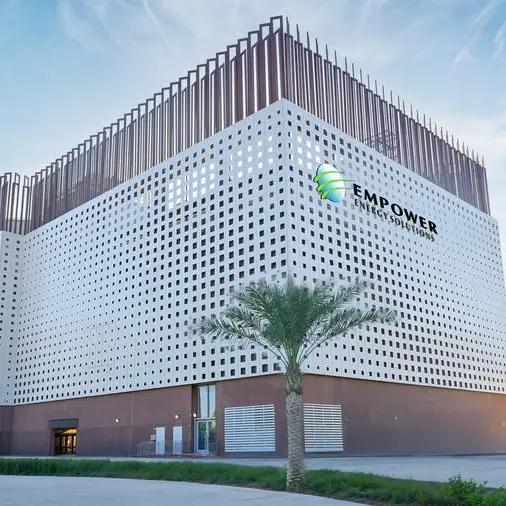PHOTO
HONG KONG - Big swings in stock markets and hedge fund activity have propelled Hong Kong's derivative trading to unprecedented highs.
The number of outstanding futures and options contracts on the city's bourse has reached 22 million so far this year, surpassing the record set in 2024 by 70% in less than three months.
Analysts and investors attribute the sharp rise in the use of derivatives this year to the craze around Chinese technology firms and the growing use of hedging tools by long-short funds to navigate geopolitical and tariff uncertainties.
Stock exchange operator Hong Kong Exchanges and Clearing has boosted its derivatives offering over the last six months to meet the market's growing demand as investors look to gain more exposure to Chinese assets in a way that helps lower their risk.
New product launches have included Weekly Hang Seng TECH Index Options as well as weekly options for 10 individual stocks.
Options, particularly those betting on large tech companies such as Tencent, Alibaba and Xiaomi , have dominated the increase in trading, the analysts and investors said.
"We have seen meaningful pick-up in single stock options activities," said Jason Lui, head of APAC equity and derivatives strategy at BNP Paribas in Hong Kong.
By entering into call or put options contracts, investors make leveraged bets on the future price movements of the underlying assets but limit losses.
Outsized gains in some very large companies have spurred investors to trade single stock options to maximise returns, Lui said.
The emergence of China's low-cost artificial intelligence reasoning model DeepSeek and President Xi Jinping's rare meeting with tech entrepreneurs have sent the Hang Seng Index up 17% this year. E-commerce giant Alibaba and smartphone and EV maker Xiaomi have surged 50% each to lead the gains.
Big stock swings often come with high volatility, posing particular risks to the Chinese market, which still faces tariff threats from U.S. President Donald Trump.
Ocean Arete, a Hong Kong-based $1 billion macro hedge fund, recently boosted its China equity exposure while staying hedged for potential market turbulence.
"One of the primary uncertainties we're trying to navigate is the U.S.-China relationship and geopolitics broadly," said Yuexin Zeng, head of investor relations at Ocean Arete. Volatility will "remain higher for longer", she said.
A volatility gauge tracking the Hang Seng Index hit a two-year high in October last year and rose again last month when the Hong Kong benchmark skyrocketed to a three-year high.
Hedge fund Aspoon Capital, which generated a 14% return in the first two months this year, is adding China tech index put options to hedge the tariff risk.
"We do think the market can be too complacent about the tariff now," Aspoon Chief Investment Officer Ryan Yin said in a newsletter.
Derivatives trading "absolutely has been strong in the last three to six months for China underlying (assets)," said Nick Silver, head of prime services for Asia Pacific at BNP Paribas.
Investors have had to become much more familiar with trading in a choppy and sometimes downward trending market in recent years, he said, "and using derivatives is probably the best, most efficient way to do that."
(Reporting by Summer Zhen; Editing by Vidya Ranganathan and Jamie Freed)
Reuters





















